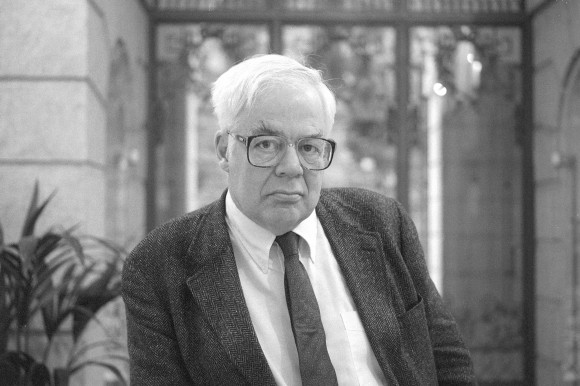맞아요! 굉장히 정확히 알고 계셔서 댓글을 읽으면서 놀랐네요. 솔직히, 로티-맥도웰 논쟁 같은 다소 지엽적인 주제를 자세히 찾아본 분들이 얼마 없을 거라고 생각했거든요. 적어도, 말씀하신 요점들이 로티에 대한 맥도웰의 비판에서 핵심이죠.
가령, 맥도웰은 "Reply to Commentators"에서 '철학의 영역에서 빠져나오기(opting out of this area of philisophy)'가 두 가지 방식으로 이루어질 수 있다고 말해요. 하나는 로티가 했던 것처럼 전통적 표상주의를 성립시킨 직관들에 대해 "꺼져(Get lost, 입 닥쳐)!"라고 말하면서 문제 자체를 폐기해 버리는 방식이고, 다른 하나는 맥도웰 자신이 추구하는 것처럼 표상주의의 직관들을 무해하게 만드는 방식이라고 하거든요.
두 방식 모두 넓은 의미에서는 비트겐슈타인을 계승하는 '치유적 철학(therapeutic philosophy)'이긴 하지만, 맥도웰은 자신의 전략이 로티의 전략보다 문제 해소에 더 적절하다고 봐요. '진리', '실재', '객관성'이라는 용어들이 무엇인가 유의미하게 사용될 수 있을지도 모른다고 생각하는 사람들에게 단순히 "그딴 용어 폐기하고 완전히 다른 프레임에서 철학을 시작해라!"라고 처방하는 것보다는, "이러이러한 오해만 제거하면 너가 생각하는 그 용어들을 유의미하게 사용할 수 있어!"라고 처방하는 것이 질병의 핵심을 제대로 짚어낸다는 거죠. 전통적 표상주의의 직관을 유지하면서도, 그 직관에서 잘못된 부분만 정확하게 제거하는 것이니까요. (비유하자면, 맥도웰이 보기에, 로티는 매독을 치료하기 위해 수은을 써서 사람까지 죽이는 의사라면, 맥도웰 자신은 페니실린을 써서 매독균만 제거하는 의사라고 할 수 있을 것 같네요.)
Rorty’s medicine, which matches the prescription of bald naturalism considered as a bit of therapeutic philosophy, is harder to take than mine, for someone who needs to be cured of those anxieties about how minds manage to be in touch with reality, just because it dismisses a central element of the mind-set that poses the need for therapy in the first place. To echo my response to Brandom, Rorty’s therapy undertakes, not to relieve that intellectual pressure, but to cut off its sources before there is any chance of its being felt at all. (J. McDwell, "Reply to Commentators", Philosophy and Phenomenological Research, Vol. 58, 1998, 422.)
로티의 철학을 두 단계로 구분해서 설명하신 것도 전적으로 동의합니다. 실제로, 브랜덤이 로티를 딱 말씀하신 구조에 비추어 설명하거든요. 로티의 철학에는 '비판적(critical)' 국면과 '구성적(constructive)' 국면이 있다면서요.
Rorty's development of this line of thought has both a critical and a constructive phase. I think it is useful to see the critique of representational models of vocabularies as centering on a particularly pregnant idea that is implicit already in the work on eliminative materialism: his pragmatism about norms, paradigmatically epistemic ones. By this I mean the thought that any normative matter of epistemic authority or privilege — even the sort of authority exercised on what we say by what we talk about — is ultimately intelligible only in terms of social practices that involve implicitly recognizing or acknowledging such authority. On the constructive side, Rorty began to explore the consequences of replacing the representational model by modeling the use of vocabularies on the use of tools. This idea, common to the classical American pragmatists and Wittgenstein, might be called 'instrumental pragmatism.' (Robert B. Brandom, "Vocabularies of Pragmatism: Synthesizing Naturalism and Historicis", Rorty and His Critics , R. B. Brandom (ed.), Malden, Mass.: Blackwell Pub., 2000, 158-159.)
칸트에 대한 해석에서도 로티와 맥도웰은 말씀하신 것처럼 다소 상이한 입장을 취하죠. 저는 이 부분은 칸트의 철학 내부에 다양한 측면들이 들어 있어서라고 생각해요. 브랜덤의 표현을 사용하자면, 로티는 "칸트의 개념적 도구를 (넓은 의미에서) 칸트의 그림을 약화시키는 데 사용(to use a Kantian conceptual tool to undermine a (broadly) Kantian representationalist picture)"(Robert B. Brandom, "Vocabularies of Pragmatism: Synthesizing Naturalism and Historicis", 160)하려 한다고 할 수 있을 거예요. 즉, '인과/정당화'라는 칸트적 구별을 사용해서 '현상/사물 자체'라는 칸트적 이분법을 무너뜨리는 게 로티의 전략이라는 것인데, 사실 이 점에서는 맥도웰도 실제로는 거의 비슷한 것 같아요. 맥도웰도 '자발성/수용성'이 서로 분리될 수 없다는 칸트의 주장을 사용해서 '현상/사물 자체'를 나누려는 칸트의 주장을 비판하니까요.
다만, 칸트 해석에 있어서는 맥도웰이 로티보다 좀 더 섬세한 측면이 있긴 하다고 생각해요. 로티는 거의 대부분의 경우 칸트에 대해 비판적이기만 하고, 칸트의 긍정적인 점들은 언급하지 않으니까요. 로티의 칸트 해석에서는 칸트와 플라톤이 잘 구분되지 않을 정도죠. 그에 반해, 맥도웰은 칸트가 개념의 중요성을 강조한 철학자라는 점을 적절하게 짚어내고 있다고 생각해요. (그런데, 사족이지만, 정작 칸트나 헤겔을 전공하신 다른 몇몇 선생님들과 이야기해 보니, 칸트나 헤겔에 대한 맥도웰의 해석을 못마땅해 하시는 분들이 많더라고요. 개인적으로, 맥도웰의 헤겔 해석은 다소 논란이 될 수 있다고 생각하긴 했는데, 칸트 해석까지도 전공자분들이 그다지 신뢰하지 않는 걸 보면서 좀 의외였어요.)
여하튼, 써주신 내용에 거의 대부분 동의해요. 적어도, 위의 내용들이 맥도웰의 관점에서는 로티에 대해 불만족스러울 만한 점이긴 하죠. 다만, 저는 이런 맥도웰의 로티 비판들을 받아들인다고 해서 로티와 맥도웰 사이에 정말 본질적인 차이가 있는지는 여전히 따져보아야 하는 문제라고 생각해요. 제가 보기에, 로티도 (데이빗슨이 "On the Very Idea of a Conceptual Scheme"의 말미에서 말한) "친숙한 대상들과 직접적 접촉을 재건"이라는 주제를 결코 무시하지는 않는 것 같아서요.
